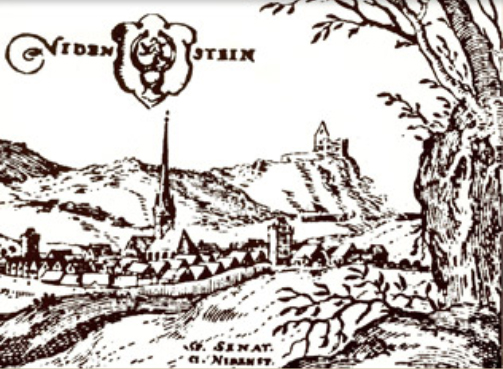“I will start with my great-great grandfather. His name Arkersmann Balthaser Knatz he was married with Anna Marie Klim. My great-grandfather was Heinrich Knatz Bierbrauer he was born 1833 he married his 1st wife in 4 Sept. 1859. Her name was Christiane Sonnenschein.They have 6 children. She passed away in 1869.
Children of the 1st wife :
1.GEORG KNATZ:BORN: 29-APRIL 1860
2.MARTHA KNAT:BORN:24-APRIL 1861
3.ANNA ELISABETH KNATZ:BORN:22-OKTOBER-1862
4.SOPHIE KNATZ:BORN:25-MAY-1864
5.CONRAD HEINRICH KNATZ:BORN 4 MARCH 1866
6.CARL KNATZ:BORN:6-JUNI-1869 Died 22 June 1869
Children of the 1st wife :
1.GEORG KNATZ:BORN: 29-APRIL 1860
2.MARTHA KNAT:BORN:24-APRIL 1861
3.ANNA ELISABETH KNATZ:BORN:22-OKTOBER-1862
4.SOPHIE KNATZ:BORN:25-MAY-1864
5.CONRAD HEINRICH KNATZ:BORN 4 MARCH 1866
6.CARL KNATZ:BORN:6-JUNI-1869 Died 22 June 1869
He married his second wife she was the sister of the first wife. Her name was Martha Elisabeth Sonnenschein. They had 5 children.
His children with the second wife.
1.Casper August knatz:Born:22- January-1871
2.Anna knatz:Born:08-May-1873
3.Carl Heinrich Knatz:Born:19-April-1876 ( My grandfather)
4.Anna Elisabeth Knatz: Born:25-July-1878
5.Anna Marie Knatz:Born:15-October-1881
His children with the second wife.
1.Casper August knatz:Born:22- January-1871
2.Anna knatz:Born:08-May-1873
3.Carl Heinrich Knatz:Born:19-April-1876 ( My grandfather)
4.Anna Elisabeth Knatz: Born:25-July-1878
5.Anna Marie Knatz:Born:15-October-1881
Carl Heinrich Knatz is born at Zuschen 19-April-1876,attended the public school,then to Radwildungen as apprentice in the knatz brewery for 3 years. And as asistant at Lenney,Mainz. On the 14 October he joined the infantry regiment 118 the 2 years being finished he was a brewer at Hamburg ,went to Argentina in 1901 where he was brewer 2 years, went to South Africa to Johannesburg.
In August 1905 he left for SouthWest Africa where he was employed for 2 years. He became indepentent. My father Hans is the son of Carl Heinrich Knatz. My father was born 1910 in Otavifontein Namibia.He was the only son of my grandfather with my grandmother.He was the owner of a farm, and a hotelin Otavifontein in 1906.
My grandmother was a black lady and it was not allowed to have a affair with a black women.
The German Regime deported my grandfather in 1919. My grandfather then married a Russian women named Martha Frieda Lichtenfeld and they had 2 girls LISSI and ANNEMIE.
The Administrator aproved my grandfather’s permit for 6 months to return to Africia. On 22 March 1925 Carl Knatz arrived in Walvisbay from where he immediately procceeded to Otavi to arrange his affairs. If he arrived in Otavi he was disappointed with the state of his affairs of Otavi and he had no other choice than to enter the services of the Consolidated Diamond Mines.”
My grandmother was a black lady and it was not allowed to have a affair with a black women.
The German Regime deported my grandfather in 1919. My grandfather then married a Russian women named Martha Frieda Lichtenfeld and they had 2 girls LISSI and ANNEMIE.
The Administrator aproved my grandfather’s permit for 6 months to return to Africia. On 22 March 1925 Carl Knatz arrived in Walvisbay from where he immediately procceeded to Otavi to arrange his affairs. If he arrived in Otavi he was disappointed with the state of his affairs of Otavi and he had no other choice than to enter the services of the Consolidated Diamond Mines.”
This is the area of Africa known as the “Skeleton Coast” a name associated with the beached whale and seal bones, along with the skeletal remains of ships that floundered on it’s rocks.Swakopmund was the main harbor of German Southwest Africa. German rule of this area began in 1883. I knew nothing of this part of the world until I was fortunate to connect with Veronica. It is thought by some historians that what happened in this part of Africa was the inspiration for many of the things that occurred during the Nazi regime in Germany. (See the book: “The Kaiser’s Holocaust” by David Olusoga and Casper Erichsen). After German South-West Africa was taken over by the Union of South Africa in 1915, many of the government offices closed, businesses closed and people left. At the start of World War I, all German’s were deported.
The documents below were provided by Veronica Knatz for inclusion on this website. From there documents you can see that her grandfather was desirous to return to Africa and then when he was able to return in 1925, he wanted to stay forever.
